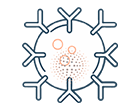Schröder-Braunstein, J., & Kirschfink, M. (2019). Complement deficiencies and dysregulation: Pathophysiological consequences, modern analysis, and clinical management. Molecular Immunology, 114, 299-311. doi: 10.1016/j.molimm.2019.08.002
Botto, M., Kirschfink, M., Macor, P., Pickering, M., Würzner, R., & Tedesco, F. (2009). Complement in human diseases: Lessons from complement deficiencies. Molecular Immunology, 46(14), 2774-2783. doi: 10.1016/j.molimm.2009.04.029
O’Neil, K. (2000). Complement Deficiency. Clinical Reviews In Allergy & Immunology, 19(2), 83-108. doi: 10.1385/criai:19:2:83
Leffler, J., Bengtsson, A., & Blom, A. (2014). The complement system in systemic lupus erythematosus: an update. Annals Of The Rheumatic Diseases, 73(9), 1601-1606. doi: 10.1136/annrheumdis-2014-205287
El Sissy, C., Rosain, J., Vieira-Martins, P., Bordereau, P., Gruber, A., Devriese, M., de Pontual, L., Taha, M. K., Fieschi, C., Picard, C., & Frémeaux-Bacchi, V. (2019). Clinical and Genetic Spectrum of a Large Cohort With Total and Sub-total Complement Deficiencies. Frontiers in immunology, 10, 1936. https://doi.org/10.3389/fimmu.2019.01936
Grumach, A., & Kirschfink, M. (2014). Are complement deficiencies really rare? Overview on prevalence, clinical importance and modern diagnostic approach. Molecular Immunology, 61(2), 110-117. doi: 10.1016/j.molimm.2014.06.030





